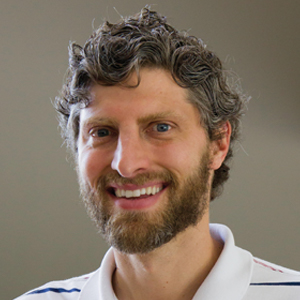Carman lauded for work on phospholipid synthesis regulation
The American Society for Biochemistry and Molecular Biology has named George M. Carman, professor of food science and director of the Center for Lipid Research at Rutgers University, the winner of the society’s Avanti Award in Lipids.
 George Carman
George Carman
About the award
The Avanti Award in Lipids recognizes outstanding research contributions in the area of lipids. The award consists of a plaque, a $3,000 purse and travel expenses for the recipient to present a lecture at the ASBMB annual meeting.
“I’m extremely honored by being chosen as the recipient of the Avanti Award in Lipids,” said Carman. “It is a great tribute to be in the same company with some of the icons in the field who have also been recipients of this award.
Carman received the award for his seminal contributions to the understanding of the regulation of phospholipid synthesis, using the baker’s yeast Saccharomyces cerevisiae as his organism of choice. Among Carman’s most important contributions is his group’s identification of the protein structure of the yeast version of mammalian lipins. These enzymes are crucial regulators of fat metabolism, and his work helped to establish a molecular basis for lipodystrophy and obesity, thereby identifying an important pharmaceutical target for the control of body fat in humans. Carman’s work also has major implications for studies of diabetes and atherosclerosis.
Carman’s “body of work involving meticulous application of biochemistry and molecular biology to the challenging study of membrane-associated enzymes is largely responsible for our current comprehensive understanding of phospholipid metabolism in yeast,” said University of Texas Health Science Center at Houston researcher William Dowhan in nominating Carman for the award.
Dowhan’s sentiments were echoed by David Brindley from the University of Alberta, who praised Carman for making “several seminal contributions to understanding the role of lipids and enzymes involved in lipid metabolism in regulating important physiological processes.”
A graduate of William Patterson College, Carman obtained a master’s degree in microbiology from Seton Hall University before going on to complete his Ph.D. at the University of Massachusetts in 1977. After a brief postdoctoral fellowship at the University of Texas Medical School in Houston, Carman accepted a position in the department of food science at Rutgers University in 1978, where he has remained ever since. In 2007, he was named director of the school’s Center for Lipid Research.
Carman will receive his award during the Experimental Biology 2012 conference in San Diego, where he will deliver an award lecture. The presentation will take place at 8:30 a.m. April 22 in the San Diego Convention Center.
Enjoy reading ASBMB Today?
Become a member to receive the print edition four times a year and the digital edition monthly.
Learn moreGet the latest from ASBMB Today
Enter your email address, and we’ll send you a weekly email with recent articles, interviews and more.
Latest in People
People highlights or most popular articles

2026 ASBMB election results
Meet the new Council members and Nominating Committee member.

Simcox wins SACNAS mentorship award
She was recognized for her sustained excellence in mentorship and was honored at SACNAS’ 2025 National Conference.

From humble beginnings to unlocking lysosomal secrets
Monther Abu–Remaileh will receive the ASBMB’s 2026 Walter A. Shaw Young Investigator Award in Lipid Research at the ASBMB Annual Meeting, March 7-10 in Washington, D.C.

Chemistry meets biology to thwart parasites
Margaret Phillips will receive the Alice and C. C. Wang Award in Molecular Parasitology at the ASBMB Annual Meeting, March 7-10 in Washington, D.C.

ASBMB announces 2026 JBC/Tabor awardees
The seven awardees are first authors of outstanding papers published in 2025 in the Journal of Biological Chemistry.

Decoding how bacteria flip host’s molecular switches
Kim Orth will receive the Earl and Thressa Stadtman Distinguished Scientists Award at the ASBMB Annual Meeting, March 7–10, just outside of Washington, D.C.

